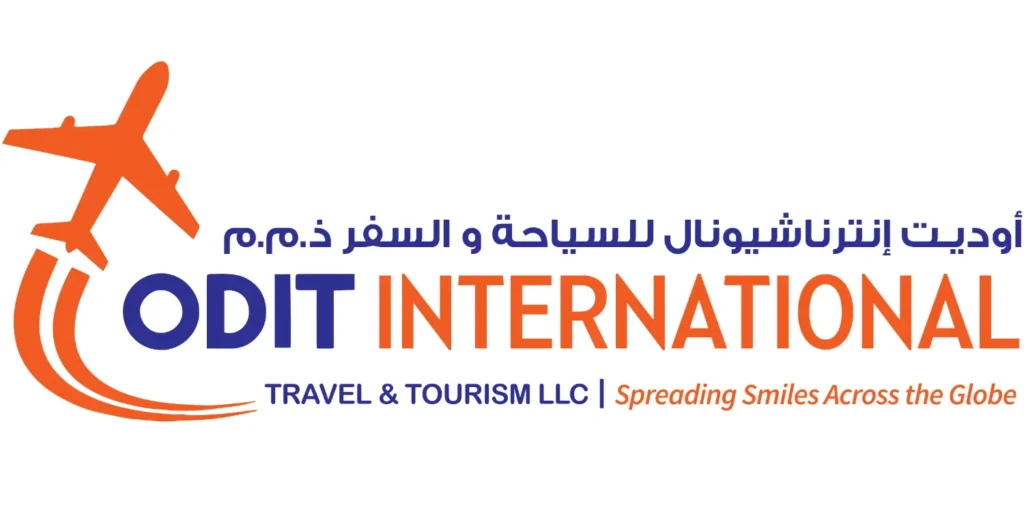Struggling with the Schengen visa Dubai process as a non-UAE citizen living in the UAE? Here’s how Odit Travels helps you fast-track appointments and paperwork in 2025.
If you’re a resident of Dubai but a citizen of another country, you already know that international travel often comes with extra paperwork. But when it comes to getting a Schengen visa from Dubai, especially for peak travel months like August and September 2025, things can get unusually complicated.
Despite being based in the UAE, many expats are finding themselves stuck in long queues, delayed appointments, and confusing embassy guidelines that vary depending on their passport. In other words, your Dubai residence visa helps—but your nationality matters more when applying for a Schengen visa.
Why Non-UAE Nationals in Dubai Face Extra Hurdles
The Schengen visa process is never one-size-fits-all, and if you’re not a UAE citizen, you’re likely to face additional checks—even though you live and work in Dubai.
Each European embassy in the UAE handles applicants differently depending on their nationality. For example, an Indian, Pakistani, Russian, Nigerian, or Filipino citizen may be asked for more supporting documents or face longer wait times compared to others.
Additionally, some embassies prioritize UAE citizens and GCC nationals—meaning non-UAE citizens have fewer appointment slots and more document scrutiny. If you plan to visit countries like France, Germany, Italy, Switzerland, or Spain, which are consistently among the most visited, it becomes even tougher during the high season.
Why August and September Are the Busiest Months for Schengen Travel
Everyone loves Europe in the summer—and understandably so. Whether it’s family holidays, honeymoons, cultural festivals, or just a break from the Dubai heat, August and September see a spike in outbound travel from the UAE.
But what that means for visa applicants is:
-
🔸 Appointments get booked out weeks in advance
-
🔸 Processing times slow down due to embassy overload
-
🔸 Approval rates drop due to incomplete or rushed applications
-
🔸 Flight and hotel prices increase the longer you wait
Embassies receive a flood of last-minute applications in these months, leading to rejections over things that could easily have been avoided—missing travel insurance, incorrect bank statements, or vague travel itineraries.
What Makes a Strong Schengen Visa Application in 2025?
For residents of Dubai applying for a Schengen visa, especially non-UAE passport holders, the embassy needs to feel confident that:
-
1. You have a genuine reason to travel.
-
2. You have the financial means to support yourself.
-
3. You will return to Dubai after your trip.
Here’s what your file typically needs to include:
-
🔸 Valid passport (minimum 6 months validity)
-
🔸 Dubai residence visa (valid for at least 3 more months)
-
🔸 Schengen visa application form (accurately filled)
-
🔸 Cover letter explaining your itinerary, travel purpose, and ties to the UAE
-
🔸 Flight tickets (with return confirmation)
-
🔸 Hotel bookings or invitation letter if staying with friends/family
-
🔸 Travel insurance (minimum coverage of €30,000)
-
🔸 Personal bank statements (past 3–6 months)
-
🔸 Salary slips & NOC from employer
-
🔸 Emirates ID copy and tenancy contract or DEWA bill
-
🔸 Additional documents depending on your nationality or previous travel history
Sounds like a lot? That’s because it is. And even if you have every document, if it’s not presented properly or doesn’t align with embassy expectations, your application could be flagged or delayed.
The Risk of Applying Too Late

The processing time for a Schengen visa can range from 15 to 30 working days—not including the wait for appointments. And if an embassy asks for extra documents or calls you for an interview, that timeline stretches further.
Waiting until the last minute means risking:
-
❗ Paying for express flight tickets
-
❗ Missing out on hotel deals
-
❗ Delayed approvals
-
❗ Full appointment calendars
-
❗ Getting a rejection and reapplying under pressure
In short, if you’re aiming to travel in August or September, you should ideally have your application submitted by mid to late June, or at the very latest, early July.
Embassies Are Changing Their Policies in 2025
As of mid-2025, some Schengen countries have started tightening their visa policies for Dubai-based applicants. For example:
-
1. Germany no longer allows informal appeals after rejection.
-
2. The EU’s Entry/Exit System (EES) is expected to roll out in October 2025, adding biometric tracking of travelers.
-
3. Many embassies are now favoring digitally complete, professionally prepared applications with minimal room for error.
If you’re applying from Dubai as a non-UAE passport holder, this adds yet another layer of complexity—and more reasons to get expert help.
Here’s Where Odit Travels Comes In 🚀
At Odit Travels, we specialize in helping Dubai residents—regardless of nationality—navigate the tricky Schengen visa process with speed and confidence.
We understand how embassies assess different passports. We know what documents make or break an application. And we know how stressful it can be to get everything right when time is ticking.
Here’s how we can help:
✅ Fast-Tracked Appointments: Don’t lose your travel dates waiting for embassy slots—we help you secure earlier appointments, even in busy months like August and September.
✅ End-to-End Visa Support: From filling out your forms to crafting a professional cover letter, we handle all the nitty-gritty so you don’t have to.
✅ Document Guidance by Nationality: Whether you’re Indian, Russian, Filipino, or from any other non-UAE country, we tailor your application to meet your specific embassy’s expectations.
✅ Real-Time Updates: Get alerts on any changes in embassy policies, document requirements, or appointment delays.
✅ Personal Consultation: We don’t just assist—we advise. You get one-on-one guidance every step of the way.
With Odit Travels, you’re not just submitting a Schengen application—you’re giving it the best possible shot at approval, without the stress, confusion, or time-wasting.
Ready to travel Europe without the paperwork panic?
Apply for your Schengen visa from Dubai with Odit Travels.
Let us fast-track your journey, while you focus on your itinerary. 🌍✈️





